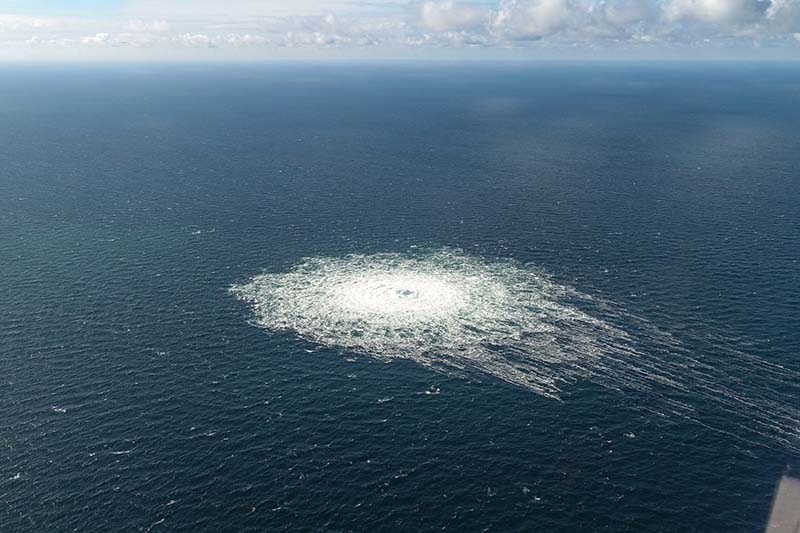The Kremlin said on Tuesday that the international investigation into blasts that damaged the Nord Stream gas pipelines under the Baltic Sea was set up with the advance intention of blaming Russia.
Kremlin spokesman Dmitry Peskov said “elementary logic” showed the pipeline damage was a blow to Russia’s interests. He said the investigation was being conducted “secretively” and without Moscow’s involvement.
A section measuring at least 50 metres (164 feet) is missing from the ruptured Nord Stream 1 gas pipeline in the Baltic Sea, Swedish daily Expressen reported on Tuesday after filming what it said were the first publicly released images of the damage.
Swedish police and prosecutors suspect the leaks that emerged on Nord Stream 1 and Nord Stream 2 on Sept. 26 were caused by deliberate subsea blasts, and are investigating the case as an act of gross sabotage.
Expressen’s video, captured with a small remotely operated underwater vehicle, or subsea drone, showed bent metal and a wide-open pipeline in murky waters at the bottom of the Baltic Sea.
Parts of the pipeline appeared to have straight, sharp edges while others were deformed, showed the footage recorded at a depth of roughly 80 metres (262 feet).
The video was filmed on Monday, Expressen said. Reuters could not independently verify that the images published by the newspaper were of Nord Stream 1.
Sweden’s security services said this month they had seized material on site after concluding their investigation.
It was not clear how the Swedish authorities’ crime scene investigation could have altered the area, according to Expressen.
The Swedish navy and the security police declined to comment. The country’s coast guard was not immediately available for comment.
Copenhagen police, investigating separate ruptures to the two pipelines, on Tuesday said the holes identified on the Danish side of the Baltic Sea maritime border appeared to have been caused by “powerful explosions”.
Further investigations into the Sept. 26 ruptures of the Nord Stream 1 and 2 pipelines in Denmark’s exclusive economic zone will be handled jointly by Copenhagen Police and Denmark’s Security and Intelligence Service.
Danish police could not say when the investigation is expected to be concluded.
“It is still too early to say anything about the framework under which the international cooperation with e.g. Sweden and Germany will run, as it depends on several factors,” Copenhagen Police said.







Click here to change your cookie preferences